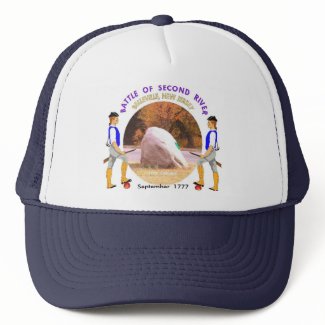Tree Spirits
It was Professor Joseph Campbell of Sarah Lawrence College who taught us that the legends, myths and old folktales of a people are the most important part of history explaining better than wars, industries and technologies who we really are. In our village, there is an abundance of these tales making our place in history secure and our understanding of ourselves and our past clear.
Some of the old town tales are of the spooky, bone-chilling kind suitable for Halloween or for scaring children into good behavior, but there are some a bit more romantic which reveal a softer side of our village nature. There is the story of the schoolmaster and the well-to-do village lady ... oh, wait ... that was one that Mr. Irving packed in his bag and transported up the North River to that other "Sleepy Hollow". Ahh, here is one, yes, I think you will like it. It's just right for this season as the Cherry Blossoms are about to bloom -
It is believed since ancient times that each tree is a spirit; a spirit that seeks ways of expressing its own innermost nature in the outer world. Many are the legends describing these magnificent beings and the tales of those who have chanced to see what is not meant for man to see.
In the old Village of Second River, so well known for its headless horsemen, shrieking ghosts and wandering spirits, isn't it apropos that ancient village spirits should find a home among the sakura along the old mill stream. From the far-off lowlands they came in wooden sailing ships to a delightful place where a sparkling silver stream flowed into a quiet, blue river. With vigorous efforts they cleared the land, built their homes, planted their crops and fought-off the soldiers of an oppressive king to preserve their freedom. They created a place by the flowing waters which they called "The Beautiful Village". It was resplendent in Spring with flowers on rolling hills, glittering in Winter when young lads would speed-skate on the ice while pretty girl skaters would frolic in dainty pirouettes on the frozen stream. In the long course of time passing, they were gone, but their spirits returned again and again to watch over their village; the men spirits to reside in the oak trees while the ladies preferred the willows.
By the middle of the last century, events conspired ... was it the will of the spirits ?... to cause the transporting in ships from a far-off land a stunning collection of flowering cherry trees. They were planted by the mill stream in the old village. What a perfect place for feminine spirits to inhabit the trees and express their girlishness, striking pretty poses, adorned in delicate blossoms, dream-dancing the ballet of the cherry blossoms. True enough it is that the sakura look like exquisite ballerinas posing in their Spring finery. If you come to see our sakura by the rippling water and chance to see an elegant pirouette swaying in the breeze or a fine arabesque, you will know that the old village spirits have returned to live once again in their beautiful village.
There is the tale of a lad returned from the war, hard used in battle, hobbled by his wounds. He could be seen on most days walking along the path among the Cherry Blossom trees. It was soothing to him to be among them. He came in every season. The sakura were charming while in blossom but he enjoyed them as well in summer as they relaxed in the warm sun renewing their energies. Autumn was a wonder when each tree would express itself with a different color palette and all together they were dazzling. It was on a late Winter's day when the sakura were bare, the pose with which they would display their beauty in early Spring was sharply defined against the cold, blue Winter sky, when he caught a glimpse of a shadow nearly obscured by brilliant sunlight playing on snow. The sakura spirits would rather you didn't see when they step out of their sleeping trees to rehearse the Cherry Blossom Ballet in the time just before Spring, but a sharp eye on the long shadows of a late Winter afternoon will sometimes reward you with a glimpse.
The lad saw among the deep shadows a dancing figure so lovely that his heart leaped and his knees nearly buckled. You know how it is when you see that special girl for the first time. After awhile this charmingly cute village-girl spirit became aware of his gaze. Amused by his adulation, she teased him a bit by striking her prettiest poses. She held his gaze for a long time. He became lost in his vision. How could he know that she was a tree spirit three centuries older than he? He only knew she was perfect. Of course, spirits are ageless, neither young nor old, but he was a long time passing from joining her. She, too, was becoming enchanted by the noble warrior spirit she saw deep within the woebegone soldier. She determined to use her best skills to engage him 'til the time might be right. And so it was that season after season, year after year, he came to the Cherry Blossom grove to admire her. So enamored was he that he came to adore her when she blossomed, when she relaxed in the Summer sun, when she was glowing in Autumn and, best of all, when she rehearsed her ballet in late Winter. At the turn of many seasons, when the time was finally right, both the tree and the old soldier were gone. He had joined his beloved tree spirit.
Watch on a breezy Spring day, when blossom petals are swirling all around you, if your heart is light, you can see them dancing together among the swirls in the Cherry Blossom grove where they first met.
Labels: Belleville NJ, Cherry Blossoms, Sakura, Tree Spirits































